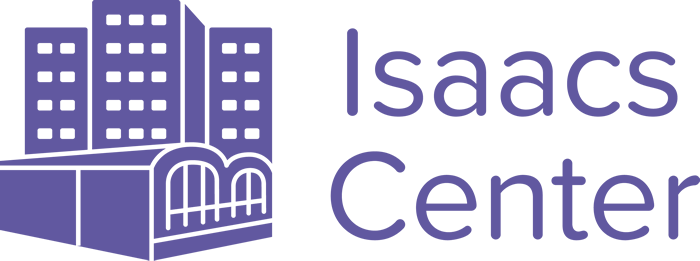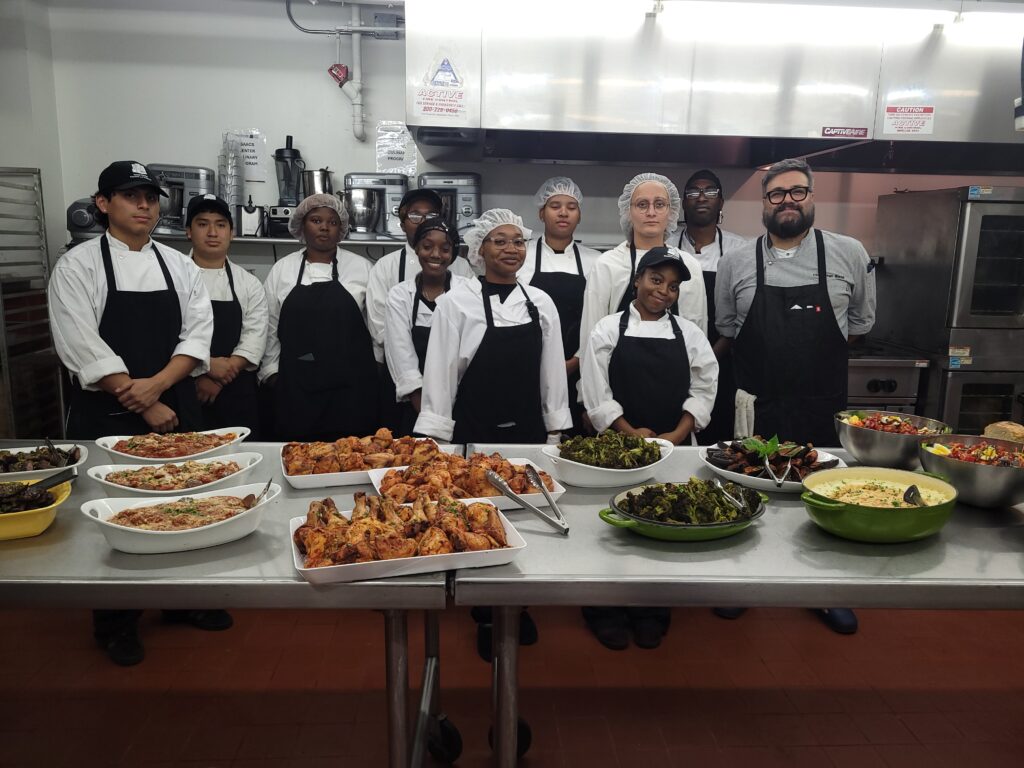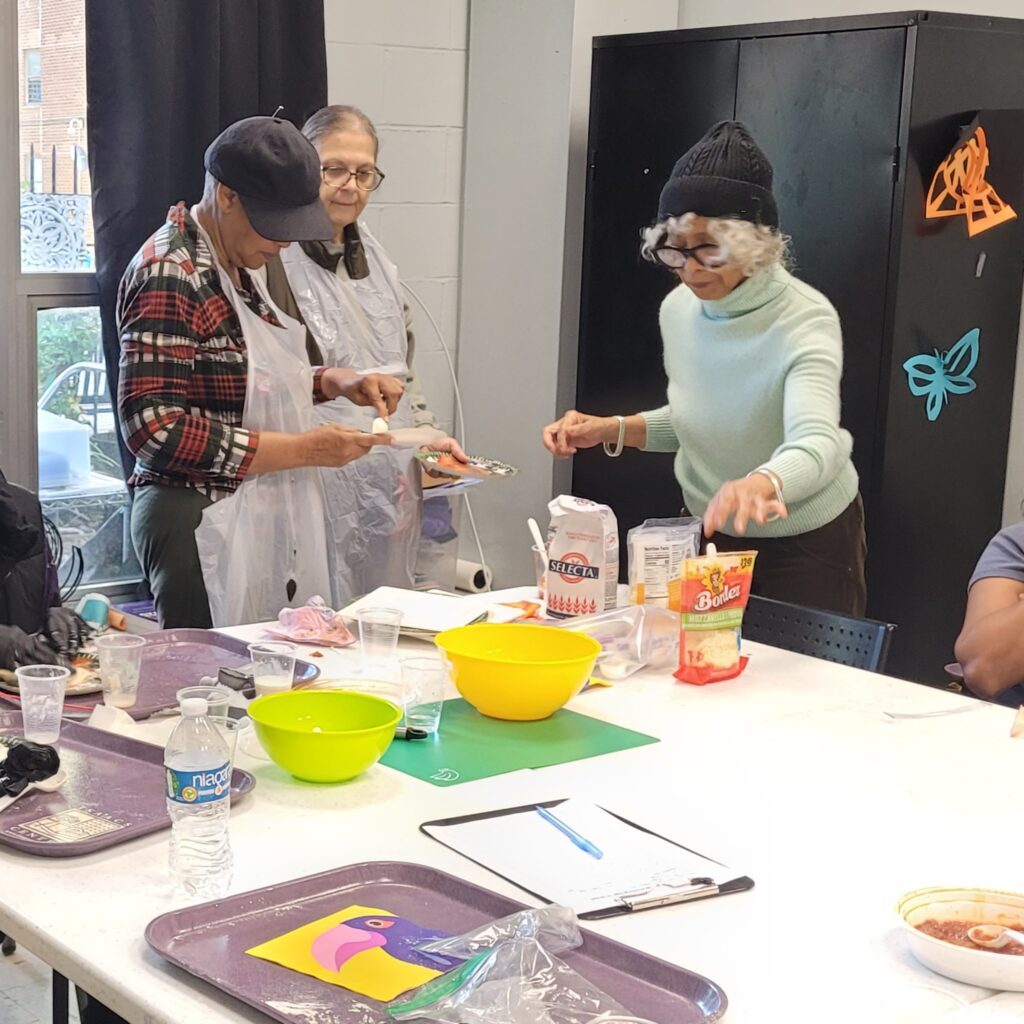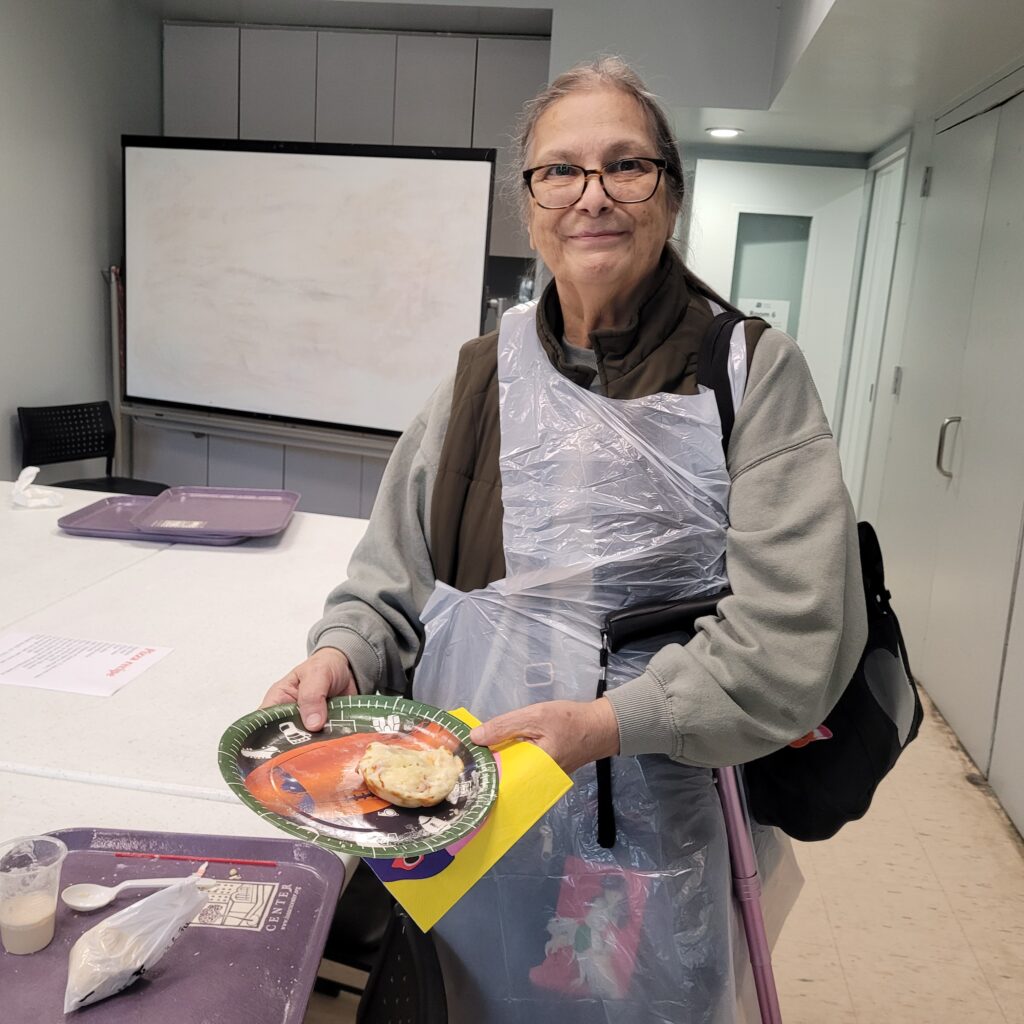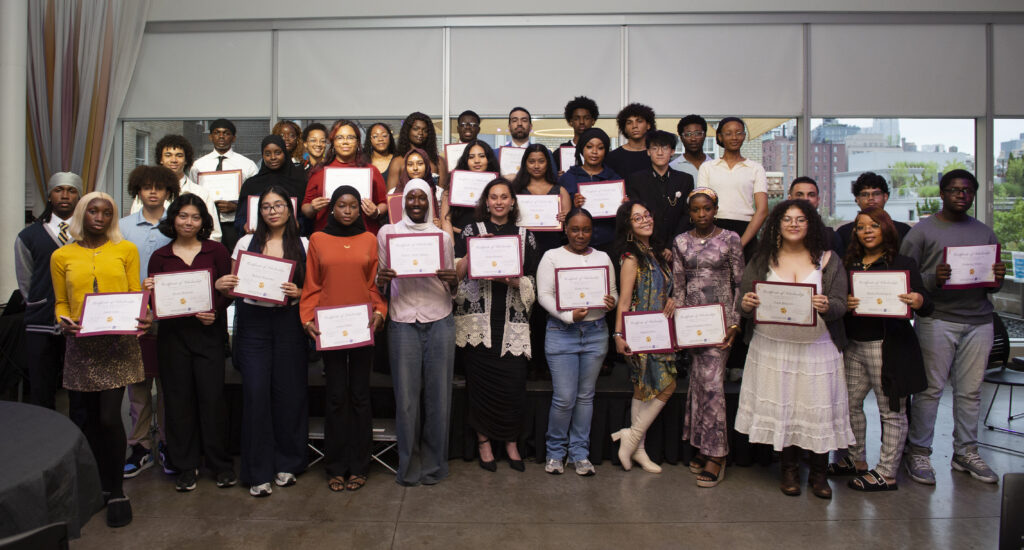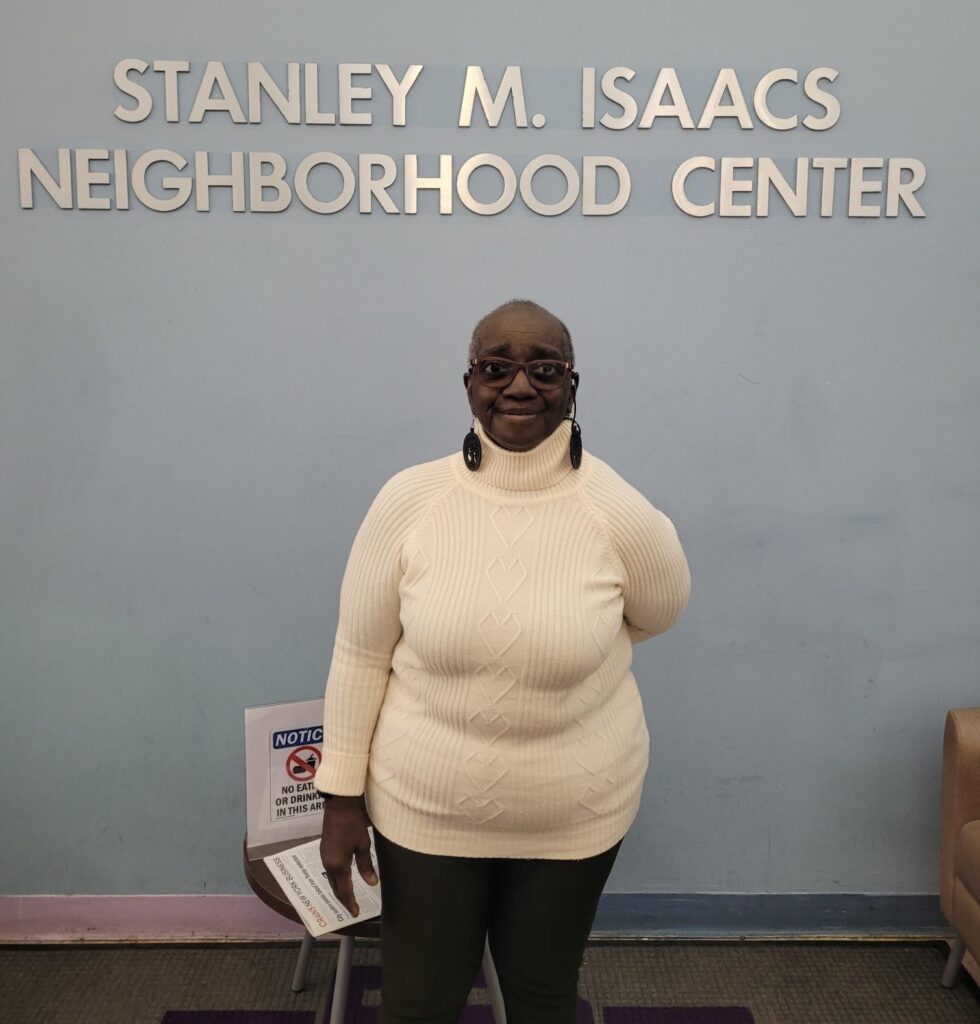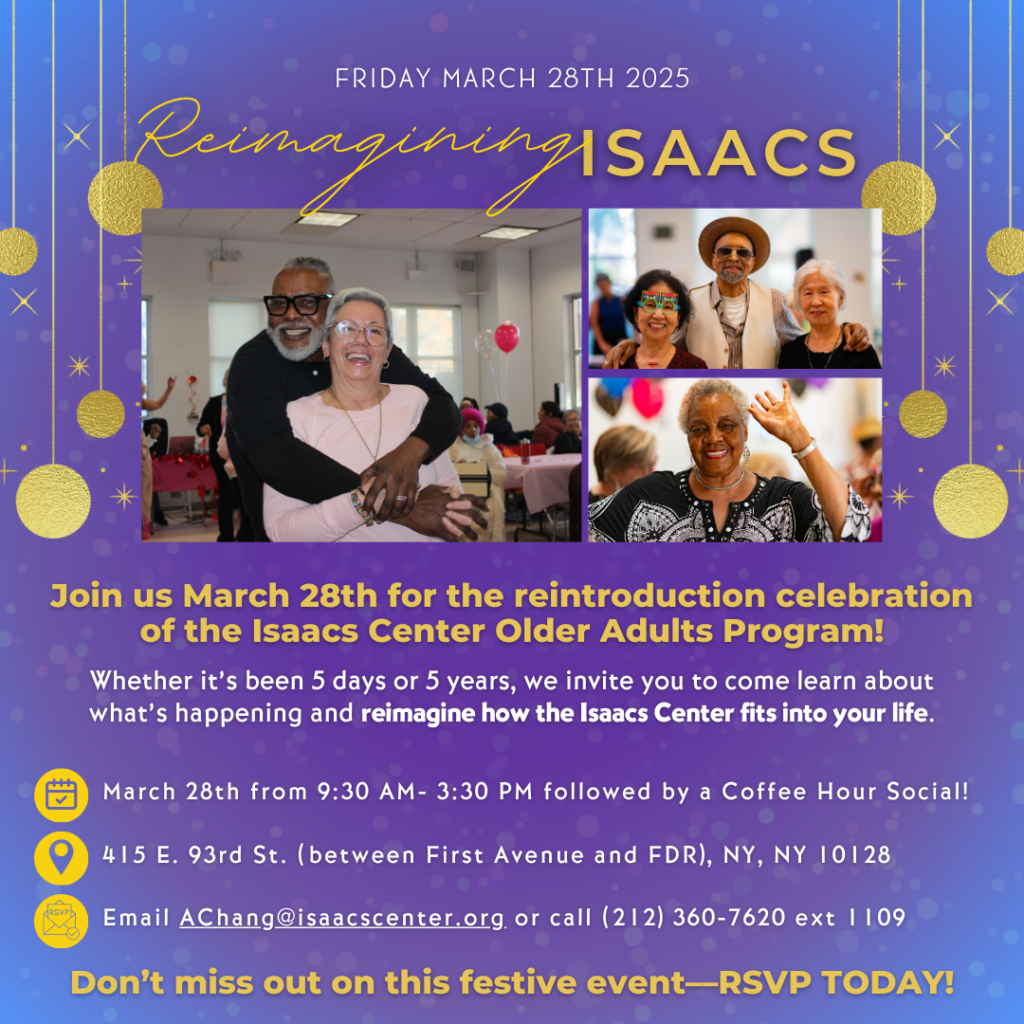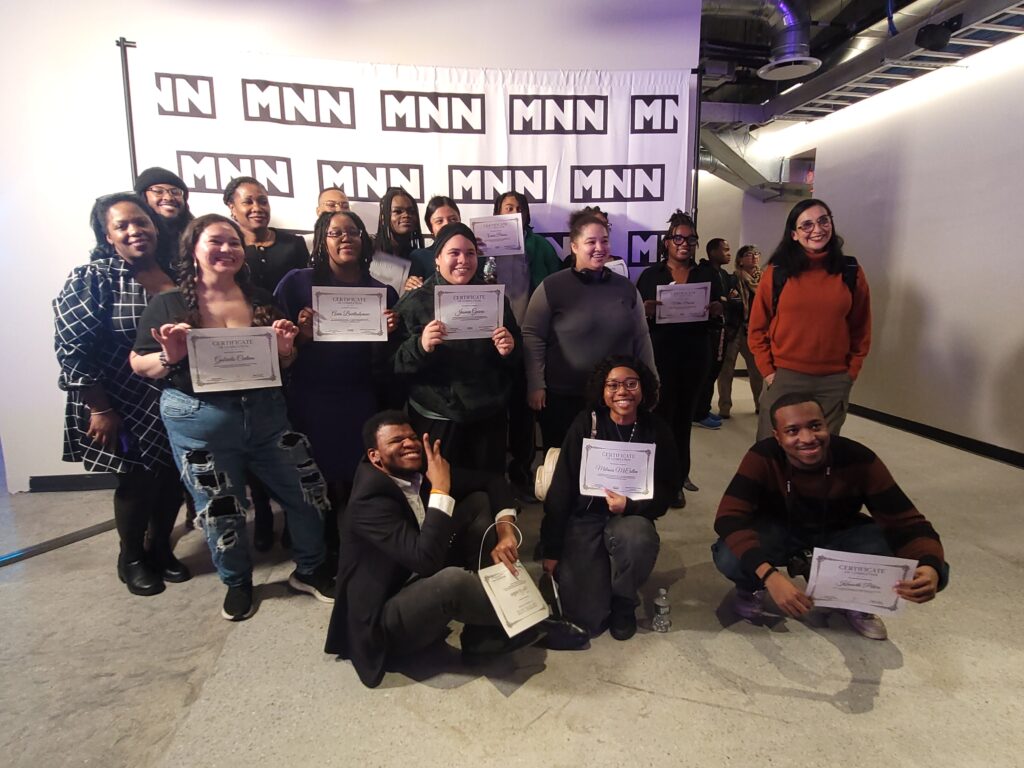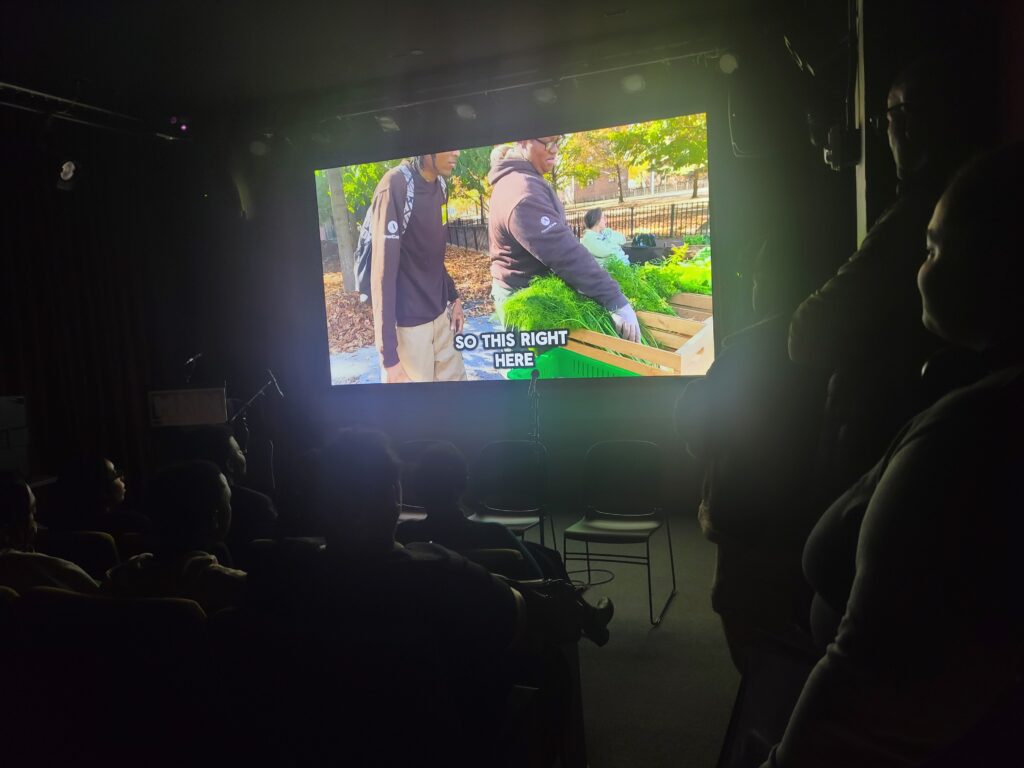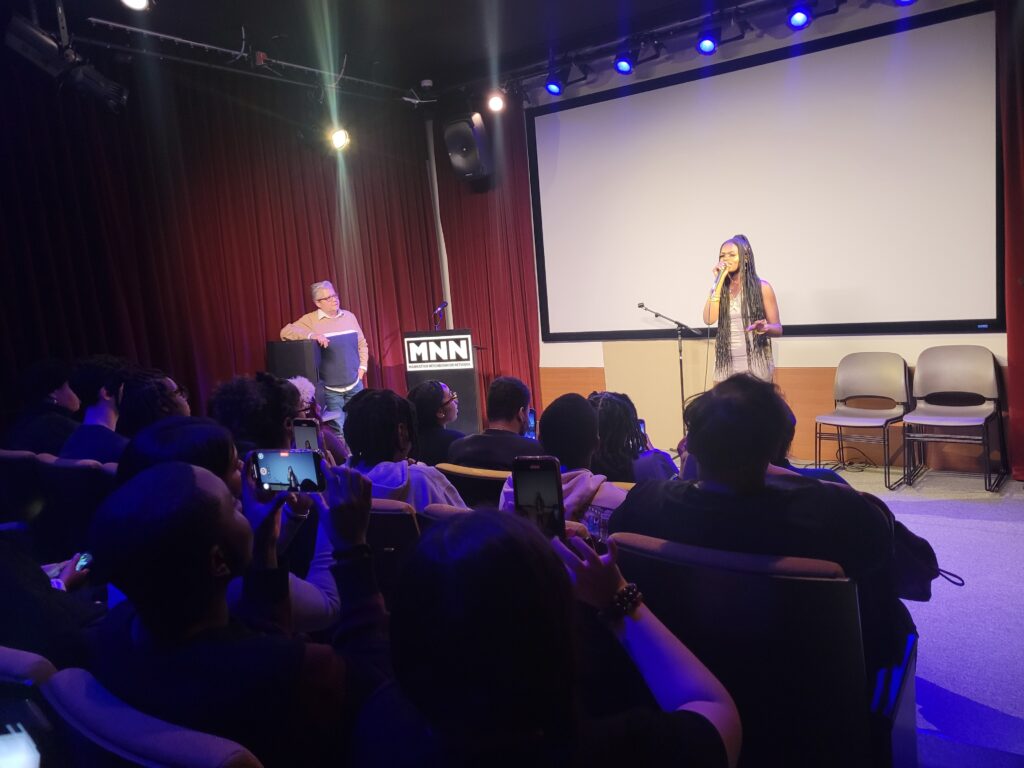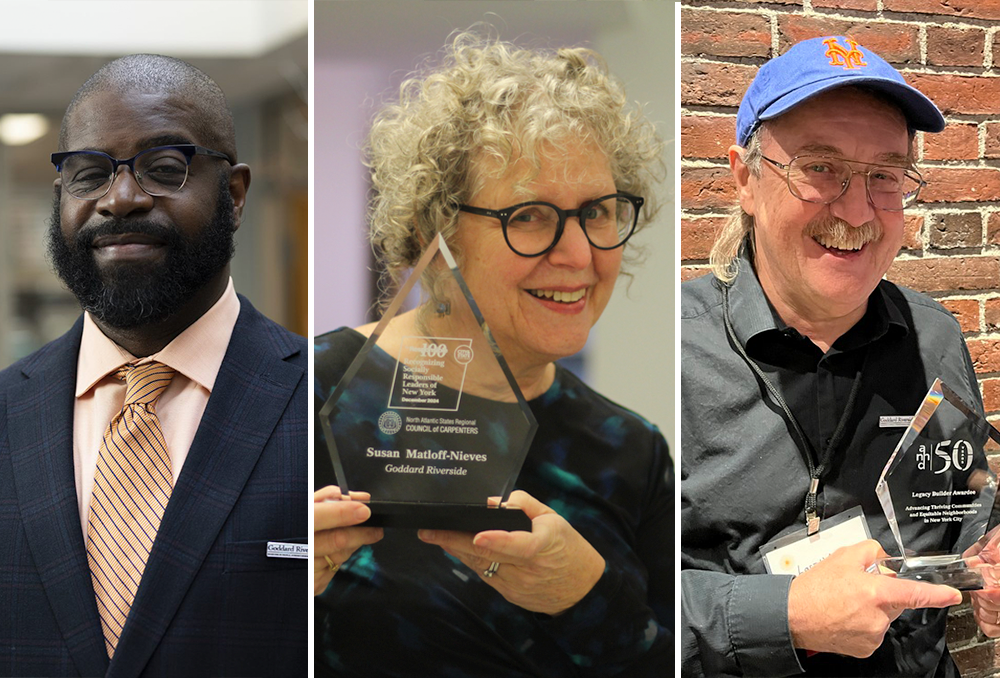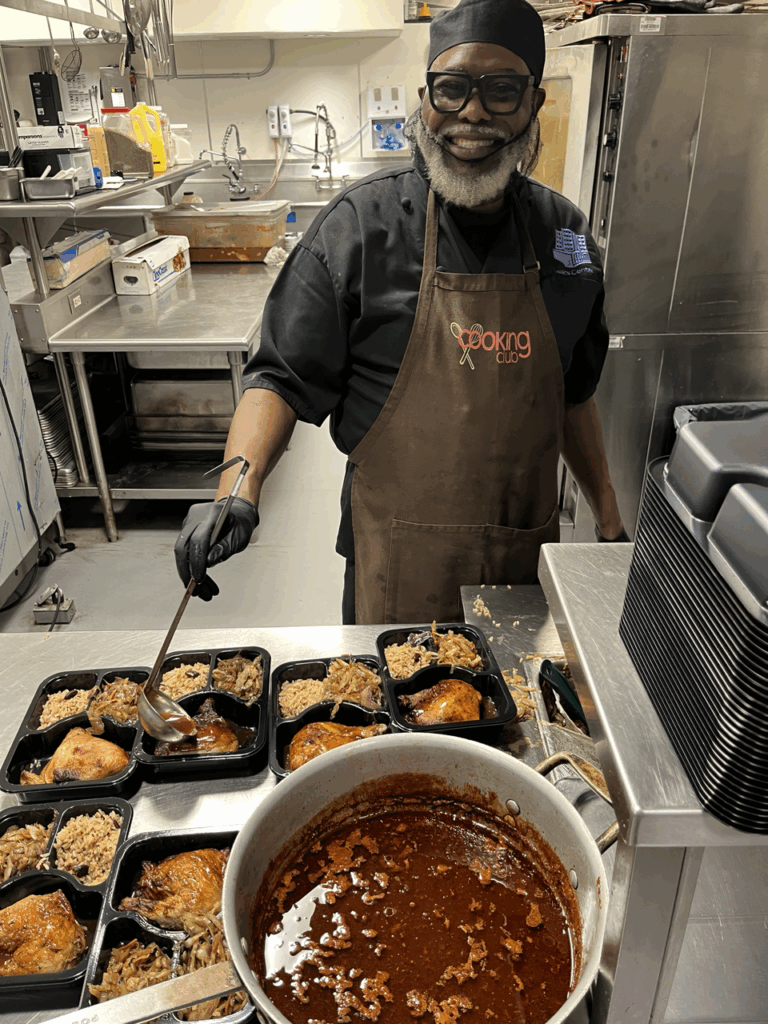
When Jeffrey Stewart came to the US from Trinidad and Tobago as a young man, he tried out a few different careers. He worked in a bank. He studied social services: “I did two years of child psychology; I did social work and so on,” he said in his gentle Caribbean lilt. “But my heart is in the kitchen.”
Chef Jeffrey, as he’s universally known at the Isaacs Center, learned to cook at his grandmother’s knee. “My grandmother, may her soul rest, she was a nurse/midwife back in the olden days. She delivered so many babies. She did so much. She was all about taking care of the needy. So that’s how I got the passion for cooking.”
On a recent morning at the Isaacs Center, that passion was manifesting in 400 portions of chicken with shredded vegetables and rice-and-peas on the side. Some lunches were destined for our dining tables, while others would be packaged in individual, sealed trays for our Home Delivered Meals program. Chef Jeffrey had arrived at around 5:30 AM to get everything started; it was now 7:15, and he was in the home stretch.
“I have a sauce over here for the chicken—I put the jerk sauce with some barbecue sauce and make it like a jerk barbecue. But we can’t make it too hot. The seniors would not eat it.”
One thing he’s learned is that the Older Adult Center members aren’t shy about their opinions. “If they don’t like something, they’ll let you know. That’s what I truly, truly learned,” he laughed. “But if they love and they gravitate to something, my God, it’s like heaven.”
His turkey wings are a favorite with members, he said, along with turkey breast. His secret for cooking the notoriously tricky meat is to use lots of moisture, even steam. Jerk salmon and turkey meatloaf are two other dishes that draw crowds (see recipe below).
Once he realized he wanted to make food for a living, Chef Jeffrey went through a seven-year program at the New York School of Cooking. He took a job at a well-known hotel chain. But the pace was brutal. Double shifts were common, and triple shifts were not unknown. “They would give us a room to go and rest” instead of going home, he recalled. He was raising a young daughter and found he didn’t have enough time for her. So when a friend connected him with a job at an older adult center in Brooklyn, he jumped. That was in 1991. In 2011, he began cooking at the Isaacs Center.
In many ways, working with older adults combines his love of cooking with his interest in social services. “What fascinates me with them is sitting with them, talking with them about the meal and hearing their life story. It’s mind blowing, really mind blowing,” he said.
Cooking for our members, he added, feels like cooking with his grandmother: an expression of love. “When they leave their house to come here, they’re coming to a home away from home. So we have to treat them with love, just give them all the love we can.”
Chef Jeffrey’s Jerk Salmon
Salmon
1.5 lbs salmon fillets
2 teaspoons lime juice
2 tablespoons corn oil
Seasoning
2 tablespoons light brown sugar
4 teaspoons onion powder
1 and 1/2 teaspoons garlic powder
1 and 1/2 teaspoons dried oregano
1 and 1/2 teaspoons dried thyme
1/3 teaspoon ground allspice
1/3 teaspoon ground nutmeg
1/4 teaspoon ground cinnamon
3/4 teaspoon paprika
Ground black pepper to taste
Directions
Preheat oven to 400°F.
In a small bowl, mix together lime juice and oil. Brush both sides of fish fillets with
mixture.
In another bowl, stir together the seasoning mixture. Evenly coat both sides of the fish fillets with the seasoning and transfer to parchment-lined baking sheets.
Cook in oven for approximately 15 minutes ensuring internal temperature reaches a minimum of 140°F.
